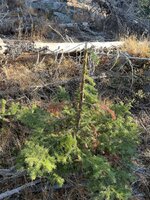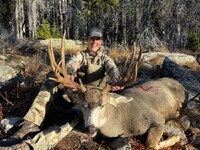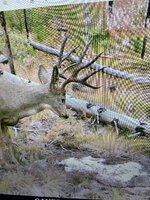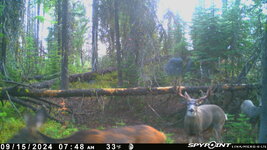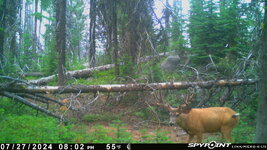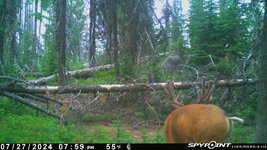ORwaterfowler
FNG
- Joined
- Mar 1, 2016
- Messages
- 41
I have tried searching but have not found much on the subject of rubs and mule deer other than for shedding their velvet or Nov rutting. In the area I have hunted over the past 12 years (Fairly heavily timbered 4-7k ft Oregon) we find fresh deer rubs in early to mid October and have at times found a buck in the same drainage not all that far away. It's not something that I have paid all that much attention to in the past, but found a rub that was clearly very fresh and from a solid buck towards the end of last season around 6k on mountain mahogany on a ridge with good escape routes and cover / all the needs covered.
There are a lot of elk rubs in the general area too but not close to this and this one had hair still in the bark / was lower etc.
My question is can this kind of sign be used reliably that the buck is still using that area as a form of tracking, or am I reading too much into it and is more of a coincidence in finding the deer not too far from the rubs on occasion?
There are a lot of elk rubs in the general area too but not close to this and this one had hair still in the bark / was lower etc.
My question is can this kind of sign be used reliably that the buck is still using that area as a form of tracking, or am I reading too much into it and is more of a coincidence in finding the deer not too far from the rubs on occasion?

